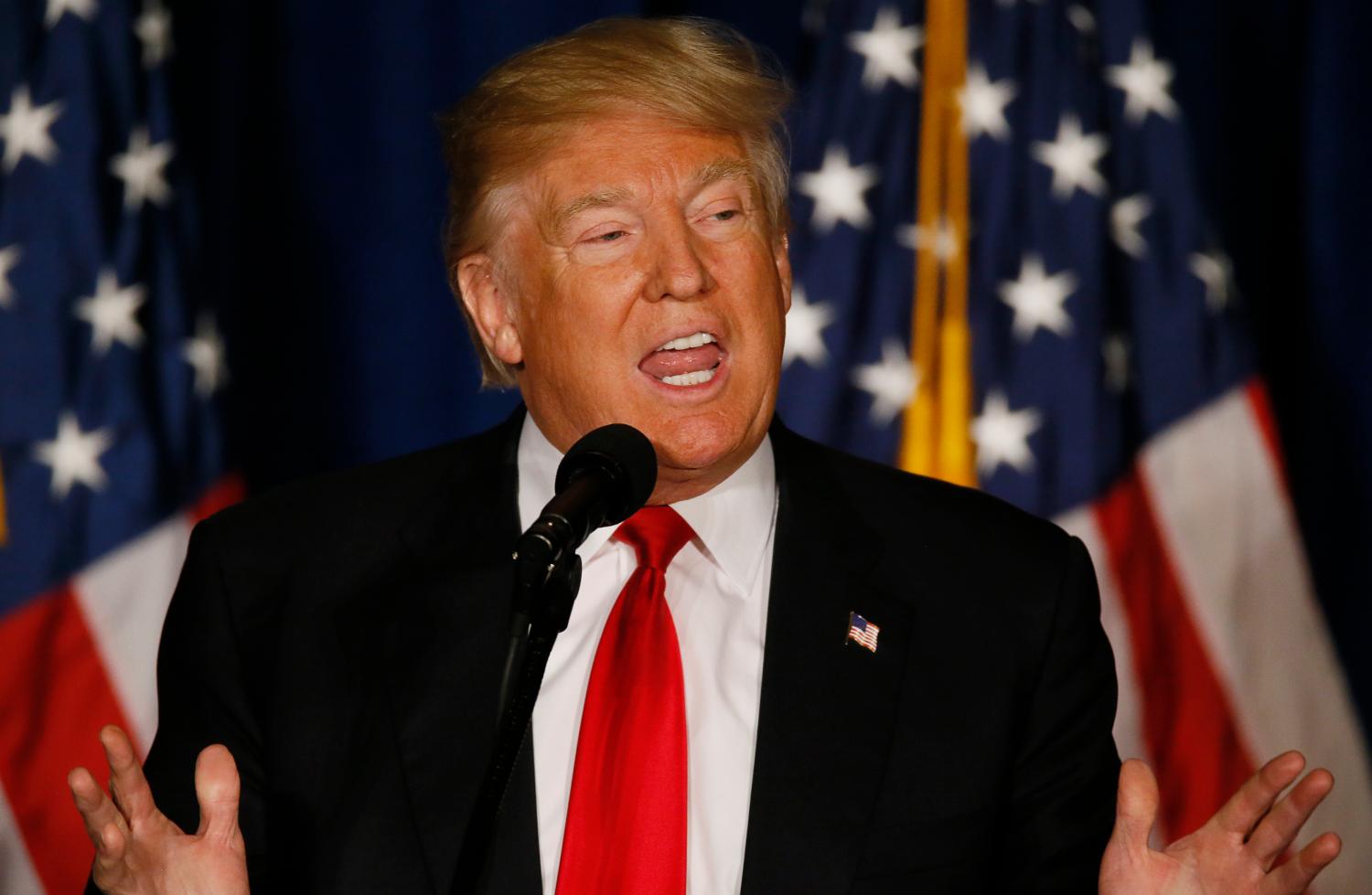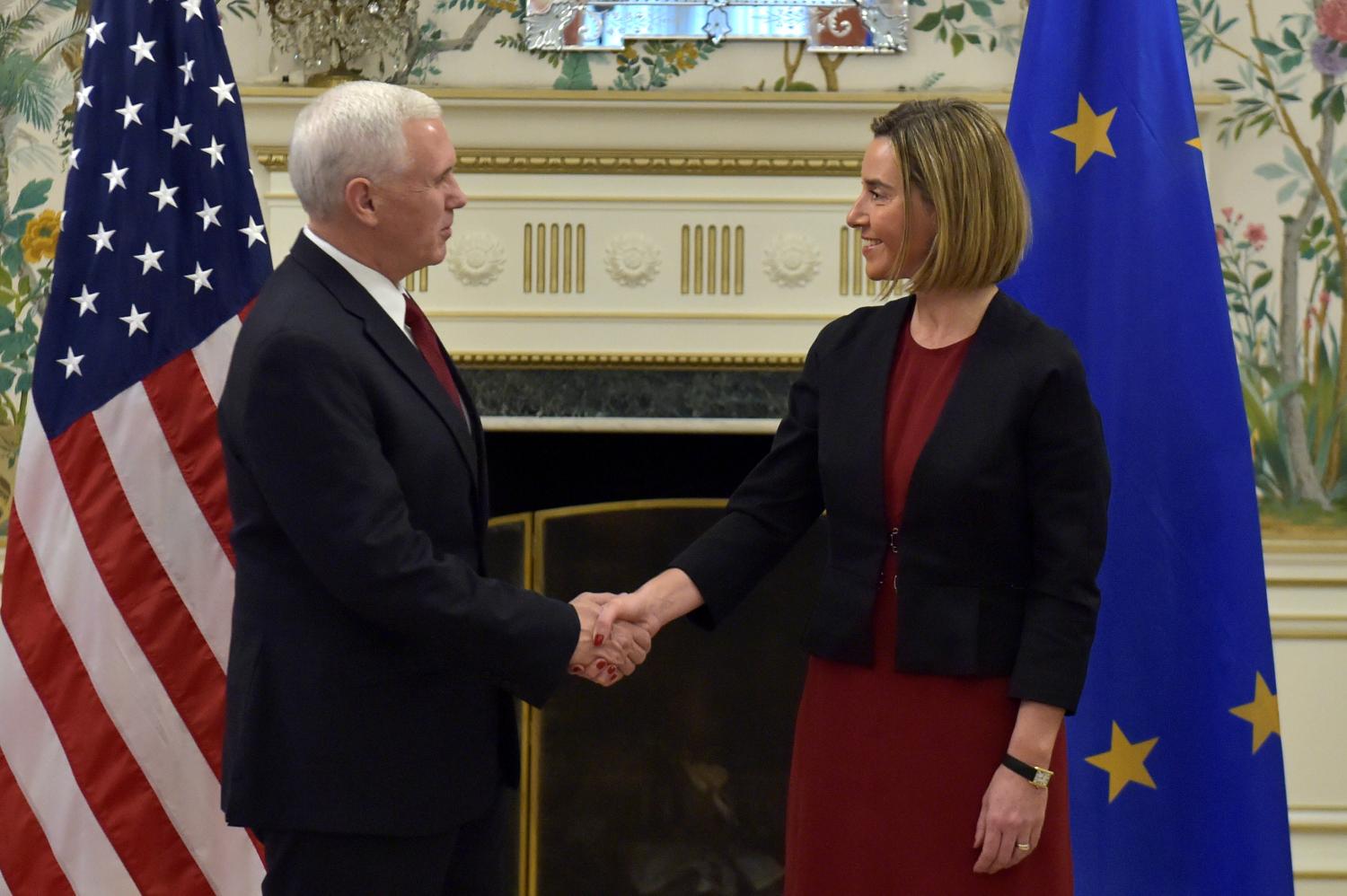Last week, President Obama became the first sitting U.S. president to visit Hiroshima and pay tribute at the Peace Memorial there. It was a remarkable spectacle, with the leaders of the enemies-turned-allies at the most sensitive site of their relationship. The occasion also touched on a crucial question of U.S. foreign policy and of the world order: the U.S. alliance system that emerged after Hiroshima and Nagasaki.
The visit came at a time when many U.S. allies question the future and durability of these alliances. The U.S. presidential election presents a unique threat to the alliance system, with a major political party about to nominate a candidate openly hostile to U.S. alliances. Donald Trump has suggested that the United States might lift the security umbrella over Japan and South Korea, and that he finds it perfectly acceptable that these allies may arm themselves with nuclear weapons as an alternative defense. Beyond Trump, U.S. politics are exerting an inward pull on politicians, and they are obliging. The president’s visit also follows years of strains to U.S. alliances elsewhere—in the Middle East—and his administration openly questions the depth of U.S. involvement required to maintain some of its Middle Eastern partnerships.
I visited Japan last month for discussions on Middle Eastern affairs—and U.S. and Japanese involvement in them—with Japanese officials, scholars, and journalists. It was a view from one end of the U.S. pivot to Asia (or the “rebalance”) to another; from the region ripe for deeper U.S. investment to that in which the administration hoped invest less (and which stubbornly refused to be divested from). I was not a Japan expert before the trip, nor am I now, but it was valuable for me to hear how the Japanese I met looked to, and what they learned from, U.S. involvement in a region I know slightly better, in Asia’s southwest.
In the Middle East, many now complain that the United States has lost credibility as an ally. After 30 years of supporting Mubarak, the refrain goes, the United States abandoned him in a matter of weeks. Notwithstanding the fact that the United States gives more material support to some of its allies than it ever has, in the form of aid or arms sales (to Saudi Arabia and Israel, for example), the perception of a declining U.S. alliance is strong and pervasive.
Notwithstanding the fact that the United States gives more material support to some of its allies than it ever has…the perception of a declining U.S. alliance is strong and pervasive.
Does this worry carry overseas? Does U.S. behavior in one region affect alliances elsewhere? The conversations I had in Japan (not a representative sample) certainly suggested so. Facing their own challenges—in a word, China—many of our interlocutors seemed anxious about U.S. commitments in their region and referenced U.S. policy in the Middle East to buttress their concerns.
I asked several people I met in Japan what their country would want from a new U.S. president, assuming he or she is still interested in productive U.S. engagement in the world (so, “she”). While I’m sure many in Japan greatly appreciate the Hiroshima visit, I heard two other requests, both related to alliance credibility and to China:
- The new president should make a gesture of visible, material support to Taiwan, the front-line, as they called it, facing China; and
- The first presidential visit in the region can include any number of allied capitals, but it should not include Beijing.
In essence, they wanted reassurance that the United States was still committed to their side of the regional rivalry; that the U.S. president would choose sides, and choose their side.
Middle East alliances: Flipping sides or seeking distance?
“Choosing sides” lies at the heart of the Middle East alliance dilemmas as well. The most pointed complaints you hear from U.S. allies are that the United States has failed to back them explicitly and concretely in the region-wide conflicts sweeping the Middle East, and especially against Iran and its proxies.
This is the view my former colleague Michael Doran articulated in an influential piece last year in Mosaic. He argued that contra common perceptions at the time, Obama had a coherent strategy in the Middle East, a point largely validated in Jeffrey Goldberg’s “The Obama Doctrine.” Doran went further and argued that this strategy was not merely a de-emphasis of America’s alliances in the region but a deliberate decision to betray allies and switch sides. Echoing fears in the region, he wrote that Obama had an “announced determination to encourage and augment Iran’s potential as a successful regional power and as a friend and partner to the United States” (emphasis added).
This latter point, I think, is an incorrect depiction of the president’s approach. Obama was not flipping sides; he was doing something conceptually more radical. He questioned the need to choose sides at all.
Obama was not flipping sides; he was doing something conceptually more radical. He questioned the need to choose sides at all.
The realist approach to foreign policy that Obama partially espouses stresses policies based on direct and concrete national interest. Alliances, which call for action on behalf of others’ interests, naturally strain this approach. In the words of then-British Foreign Secretary Viscount Palmerston in 1848: “We have no eternal allies, and we have no perpetual enemies. Our interests are eternal and perpetual, and those interests it is our duty to follow.”
The Obama administration is far from neutral in the Middle East, of course. Despite a reduced involvement in the region, American forces are currently fighting there, and arms, aid, and diplomacy are all still heavily deployed. Yet it’s clear that Obama wants a more distanced posture, viewing the region in terms of a balance of power, rather than an outright victory of one side over another. This drives Middle East allies mad—the perceived aloofness, even disdain for the quarrels of irrational local actors.
“Whose side are you on?” seems to be the recurrent theme in allies’ complaints. They have something there: Obama has sided with allies, but not as often as they’d like, and, at times, with clear reluctance. The United States has adopted the stance of the adult in the room, above the partisan fray. Obama doesn’t get it, in their view. He doesn’t see that there is a bloody, region-wide war raging between (what should be, they think) clear friends and foes.
In truth, neutrality has its appeal: It guards against the folly of war and keeps one safely removed from the pernicious logic of escalation and counter-escalation. Excessive alliance entanglement also can feed a sense that the United States is omnipotent and responsible for everything, creating moral hazard and tying the United States into sharing too much of the burden. Even the president has now complained, to Goldberg, of allies free-riding on U.S.-supplied international security.
Neutrality in a worthy fight is no virtue, however. The so-called “Greatest Generation” of Americans and their Soviet and British contemporaries are celebrated, and rightly so. Their Swiss counterparts are not. And to those in the fight, the war usually seems worthy, as it does to the parties in the Middle East.
[T]here’s a contradiction between these concerns and the reality of deep U.S. involvement in both regions.
What I heard in Japan echoed the Middle Eastern sentiment, to a degree: both want the United States to demonstrate that it knows whose side it’s on. There’s also a common contradiction between these concerns and the reality of deep U.S. involvement in both regions. Just as the United States is heavily involved in the Middle East, in East Asia the United States has dozens of thousands of troops stationed in allied countries; it conducts joint exercises and naval maneuvers on a regular basis; it has explicitly extended its security guarantee to the Senkaku islands, as they’re known in Japan; and it devotes a great deal of time and energy to East Asian affairs.
Some anxiety is normal
The concerns are no accident. Alliances, by their very nature, are anxiety-inducing. They are necessary, after all, precisely when the interests of countries are not perfectly aligned (otherwise the countries would be incentivized to act in consort anyway, and no formal alliance would be needed). Western European countries, for example, could have suspected with good reason that the United States would not want to entangle itself, yet again, in bloody European wars had the Soviet Union invaded. As Tom Wright wrote in the context of another presidential candidate’s misgivings on alliances, a formal alliance, NATO, committed the United States to fight alongside its allies by stationing troops in West Germany. The same was and is true for Japan, Taiwan, and South Korea. Alliances, in other words, are needed precisely so as to commit the parties to act beyond their immediate interests, taking a longer view, and this commitment is inherently open to interpretation and questioning.
Alliances, in other words, are needed precisely so as to commit the parties to act beyond their immediate interests, taking a longer view, and this commitment is inherently open to interpretation and questioning.
The question then is: Where do you draw the red line beyond which you will truly fight? Draw it too narrowly and you will effectively lose your alliances and risk losing all they provide: Alliances make allies feel less compelled to arm themselves and instigate regional arms races (conventional or nuclear); adversaries, too, may see less incentive in trying to arm themselves if faced with overwhelming allied superiority; allies may feel less inclined to react to every perceived infringement of their sovereignty or national honor, since they would be more secure in their position; and adversaries understand in advance the limits of one’s patience and can avoid crossing these thresholds. Properly maintained alliances, in short, provide for peace.
Draw the lines of your commitment too broadly, however, and you risk stoking conflict rather than supporting peace. The U.S. relationship with China is of paramount importance for the next century of world affairs. If at all possible, steering it toward peaceful, healthy competition is a vital U.S. interest. In Asia as in the Middle East, supporting U.S. allies should always be approached with prudence to the stakes on both ends of the spectrum. Alliance maintenance and alliance anxiety provide no simple answers.
U.S. allies’ anxiety is accentuated when they look at the state of U.S. politics. Americans are understandably weary of their foreign commitments, and their leaders in this dysfunctional city are not doing enough to enunciate the differences between essential U.S. involvement in the world and overreach. One presidential contender is openly disparaging the most sensible of U.S. alliances; all three remaining candidates now formally reject the agreed-upon version of the Trans Pacific Partnership trade agreement, a cornerstone of the U.S. rebalance to Asia.
Maintaining the dramatic gains—to the United States and to the world—of the U.S. alliance system will therefore require an honest and responsible political conversation about these gains. It will require deliberately sustaining alliances, without falling into a trap of treating every anxiety abroad as a sign of doom. In the Middle East, this is complicated enough, but for once, those of us in the Middle East business can pity our Asia-hand colleagues for their problems.
The Brookings Institution is committed to quality, independence, and impact.
We are supported by a diverse array of funders. In line with our values and policies, each Brookings publication represents the sole views of its author(s).






Commentary
Whose side are you on? Alliance credibility in the Middle East and Japan
May 31, 2016